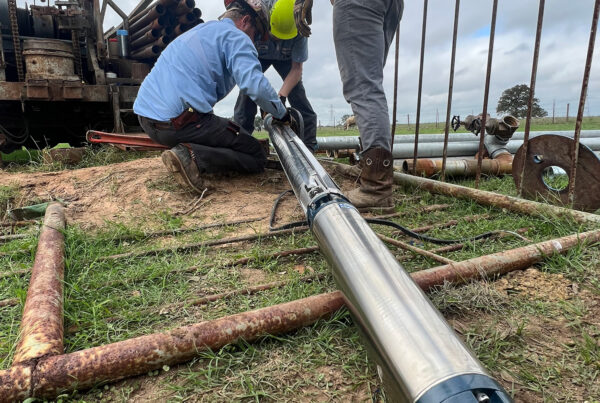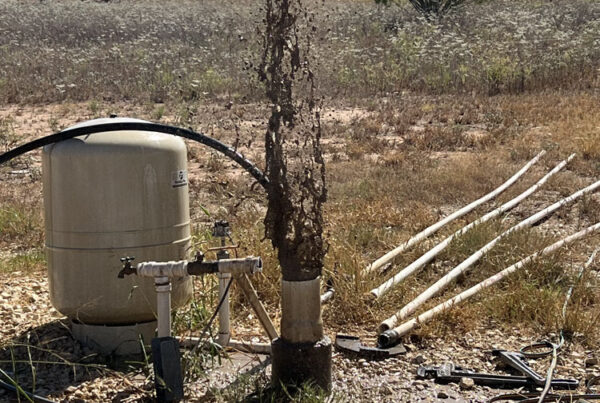When your well pump runs into trouble, it can feel like a small crisis at home. After all, nobody wants to deal with low water pressure or no water at all! But don’t worry—finding someone to fix your well pump doesn’t have to be a headache. In this article, we’ll guide you through the essential steps to uncover reliable local repair services. From gathering personal recommendations to researching online reviews, we’ll help you equip yourself with the knowledge you need for making informed decisions. Let’s dive in and put your mind at ease about keeping that water flowing smoothly!
To find reliable well pump repair services near you, search online for qualified local companies with positive reviews and customer testimonials. You can also visit our website to reach out via our contact form for prompt assistance and professional service tailored to your needs.
Finding Reliable Well Pump Repair Services
When searching for well pump repair services, you’re not just looking for someone to fix a problem; you’re seeking peace of mind. After all, your well water is essential for your home and family. As you embark on this journey, it’s important to consider factors beyond simple marketing slogans or flashy websites.
Start with personal referrals if possible—ask friends, family, or neighbors if they’ve had positive experiences with any local providers. Individuals you trust can often give firsthand accounts of reliability and quality that no advertisement could match. According to a 2023 survey, 68% of people find their repair services through word-of-mouth recommendations, which speaks volumes about the value of personal connections.
However, while personal connections are helpful, verifying credentials is crucial in selecting a reliable service provider.
Look for proper licensing and certification portrayed clearly by companies. It’s particularly important to check whether the technicians possess relevant qualifications, such as those required by the National Ground Water Association. This kind of verification ensures that the professionals you hire adhere to predetermined industry standards. Often, a certified technician reflects an investment in their training, giving you confidence that they know their stuff.
In addition to personal recommendations, don’t underestimate the power of online reviews. Websites like Google Reviews and Yelp serve as treasure troves of direct experiences from previous customers. Here lies another opportunity: when reading reviews, hone in on specific keywords such as “punctuality,” “professionalism,” and “quality of work.” A company with consistently high ratings across these areas tends to be more reliable.
Look at trends within the feedback—if multiple customers express similar concerns or delights, it becomes easier to gauge the reliability of the service. One or two negative reviews mixed in amongst an otherwise glowing collection may not be alarming; however, patterns should raise red flags.
Now that you’ve gathered several potential options through referrals and online insights, it’s time to compare quotes and services offered.
Comparing quotes is vital—not just for pricing but for understanding what you’ll receive for your money. Some companies might include warranties or maintenance checks for free after repairs; others may charge extra. Don’t be shy about asking questions that gauge their commitment to customer satisfaction. You deserve not just affordable service but quality care as well.
As you evaluate your options based on price and service expectations, let’s explore one common area where homeowners encounter issues: the functionality of their well pumps.
Common Issues with Well Pumps
Knowing the ins and outs of well pump issues can save both time and frustration. One prevalent issue is loss of water pressure. Imagine turning on your tap only to find that barely a trickle comes out. This situation can stem from various causes, such as a malfunctioning pressure switch or a damaged pressure tank. Sometimes, the problem might lie in clogged pipes, where sediment builds up over time, restricting water flow. Paying attention to these early warning signs—like fluctuating water pressure—can help you act quickly, maintaining a steady supply of water in your home.
Another common dilemma is when the pump continuously runs even when no water is being drawn. This could be quite alarming, and there’s usually a clear underlying reason. A leaking pressure tank may allow water to escape while the pump struggles to fill it back up. Alternatively, electrical components in the system might malfunction, causing the pump to operate without adequately checking the water levels or pressure settings.
It’s crucial to remember that some indicators might suggest simple fixes, while others could indicate significant or costly issues lurking below the surface. Whether it’s telling your repair technician about strange noises coming from the system or unusual fluctuations in water temperature, detail matters when diagnosing these devices.
- Loss of water pressure
- No water from taps: An empty tank doesn’t mean you’re out of groundwater; it indicates an issue that requires immediate attention.
- Air in the system: Air pockets can disrupt normal flow and lead to erratic water delivery.
- Pump constantly running: If this persists, action must be taken.
- Strange noises: A pump should operate quietly; unusual sounds may mean mechanical friction or other issues.
Thoroughly assessing these common issues will not just enable you to spot potential problems sooner but will also empower you to communicate effectively with professionals if it becomes necessary. Understanding these factors lays the groundwork for addressing more specific concerns related to pump performance and maintenance.
Troubleshooting Pressure and Electrical Problems
When your well pump isn’t delivering the water you need, it’s vital to approach the situation methodically. Start by addressing pressure issues first because they could be indicative of deeper mechanical faults.
You should closely examine the pressure gauge—this tool is crucial in helping determine whether your system is operating effectively or if something’s amiss. If the gauge reads below the normal range, that’s a big red flag! Potential culprits could include a clogged filter, which restricts water flow, or an issue with the pressure tank, which may have lost its efficiency over time.
Pay attention to any unusual sounds coming from the tank or pump, such as grinding or clicking noises. These can signal mechanical issues, like worn bearings or impellers that are on their last legs and need replacing.
Once you’ve investigated pressure issues, it’s time to turn your attention to potential electrical problems, which can often complicate matters further.
Electrical Component Checks
Begin your troubleshooting process by checking the breaker box. Make sure no circuits are tripped that would prevent power from reaching your pump. Sometimes, it’s just a simple reset that saves you from a bigger hassle later on.
If everything looks fine at the breaker level but there’s still no power, then inspect the wires linking the pump to its power source. This step is crucial since degraded wiring can compromise power delivery and result in intermittent function losses.
Use a multimeter for a thorough evaluation of voltage and current flowing to your pump. This handy tool enables you to ensure that the readings match your pump’s specifications—a vital check that could reveal underlying electrical issues needing immediate attention.
Consider this: when both electrical and pressure checks align positively, you’re likely dealing with minor maintenance issues rather than major malfunctions. Most problems stem from either filters becoming clogged or wiring showing signs of age.
By following these guidelines for troubleshooting, you can minimize downtime and ensure your well system runs smoothly, while also preparing you for further discussions about evaluating costs associated with repair needs.
Understanding Repair Costs
When it comes to well pump repairs, having a clear idea of potential expenses is essential for maintaining both your peace of mind and your water supply. The costs associated with repairs can fluctuate depending on several factors. On average, repairs can range from $300 to $1000. This variation largely depends on the complexity of the issue at hand and the specific model of the pump being serviced.
Consider these average costs for common repair services:
| Service Type | Average Cost ($) |
|---|---|
| Pressure Switch Replacement | 100-200 |
| Pressure Tank Repair | 200-500 |
| Motor Repairs | 250-600 |
| Deep Well Submersible Pump Replacement | 600-1500 |
| New Well Installation | 4000-12000 |
It’s important to understand that labor rates can differ dramatically based on where you live. Rural locations may have lower labor costs compared to urban areas where demand for skilled professionals is high. If you find yourself in need of emergency repairs—perhaps during a hot summer when access to water is paramount—you should anticipate additional charges, as service providers often prioritize urgent calls.
But how do you avoid unpleasant surprises when it comes to expenses? It’s relatively simple: always request a detailed estimate before any work begins. A trustworthy technician will provide a transparent breakdown of costs associated with both parts and labor. This way, you can make informed decisions and choose a service that aligns with your budget.
Keep in mind that while focusing on affordability is crucial, compromising on quality isn’t advisable either. Investing in reliable repairs now can save you significant costs down the line by preventing repeated breakdowns or more extensive issues later.
With a clearer understanding of these potential costs, you are now prepared to navigate decisions about service options and the implications they carry for your home’s water system.
Repair vs. Replacement: Making the Best Choice
When faced with a malfunctioning well pump, the dilemma of whether to repair it or invest in a new one can feel daunting. It’s essential to approach this choice with an organized mindset, considering several important factors. Beyond just the immediate cost implications, assessing the pump’s age, its reliability history, and the context of previous repairs is crucial in making an informed decision.
Generally speaking, most well pumps have a lifespan ranging from 8 to 15 years. If your pump is already nearing this limit, replacing it might save you both money and headaches in the long run. Imagine waking up one morning only to find your water supply disrupted due to an unexpected breakdown—it’s an inconvenience that could be minimized by a proactive replacement.
On the flip side, if your pump is relatively new yet encounters minor issues. Such as a faulty pressure switch or clogged filters. Repairs typically make more sense financially. Think of it like maintaining your car; sometimes fixing small problems can extend its life without the burden of purchasing a brand-new vehicle. However, keep in mind that frequent repairs on a new system might signal underlying issues that could potentially lead to greater problems down the line.
A well-maintained history of service on your pump can also indicate how well it has performed over time—an investment worth considering!
Factors to Consider
To put things into perspective, here’s a direct comparison between repairs and replacements:
Repair:
- Generally involves lower initial cost, making it easier on your wallet immediately.
- Often results in a quicker turnaround, meaning you can restore your water supply swiftly.
- While fixes could see you through for several months or even years, there remains a chance of recurring issues, which can lead to frustration and additional costs later.
Replacement:
- Comes with a higher upfront cost, which might seem daunting initially.
- Offers a more durable solution since modern well pumps are engineered for improved longevity and efficiency.
- Installation takes time, potentially prolonging periods without access to water while ensuring all components are up to code.
Understanding these elements highlights your options regarding your well pump situation. As you weigh these considerations, seeking advice from local experts can help clarify which direction would best suit your needs moving forward.
Tips for Selecting Local Professionals
When searching for someone to repair your well pump, the last thing you want is a hastily made decision. Selecting local professionals requires some digging and careful thought. Start by seeking recommendations from friends, family, or coworkers who have had similar work done. Their experiences can provide invaluable insight into the behaviors and practices of local contractors. Personal referrals often lead you toward trustworthy individuals whose service quality is already tried and tested.
Next, don’t shy away from knocking on local doors—or rather, picking up the phone. Calling potential contractors allows you to gauge their patience and level of customer service even before you decide to hire them. A good contractor will take the time to answer your questions and address any concerns with clarity. Ask about their specific experience with well pumps; you want someone who isn’t just experienced but specializes in this area.
“A good rule of thumb is to interview at least three contractors before making your choice.”
Furthermore, make sure to confirm that they carry appropriate licenses and insurance. This isn’t just a formality; it serves as a safety net for both parties involved. Licensed professionals adhere to regulations ensuring that their work meets standard codes of practice, while insurance protects you in case accidents occur on-site.
Equally important are the questions you ask during those initial dialogues:
- Are you licensed and insured?
- How many years of experience do you have with well pump repairs?
- Can you provide references from previous clients?
- What kind of warranty do you offer on repairs?
Each of these questions unveils critical information about their reliability and commitment to customer satisfaction.
Beyond just asking questions, consider checking out online platforms like Google Reviews or Yelp where customers share their experiences. For instance, one glowing review mentioned Stevens Drilling for its prompt response time and thorough diagnostics—showings like these not only affirm quality work but also demonstrate a respect for your time as a customer.
Ultimately, selecting local professionals for well pump repairs isn’t solely about choosing the best price. It’s about entrusting someone with significant responsibility regarding your home’s water system. By taking the time to vet your options carefully. Not only do you enhance the likelihood of a successful repair, but you also gain peace of mind knowing that your choices reflect value beyond cost. A fundamental aspect when it comes to home maintenance selections.










